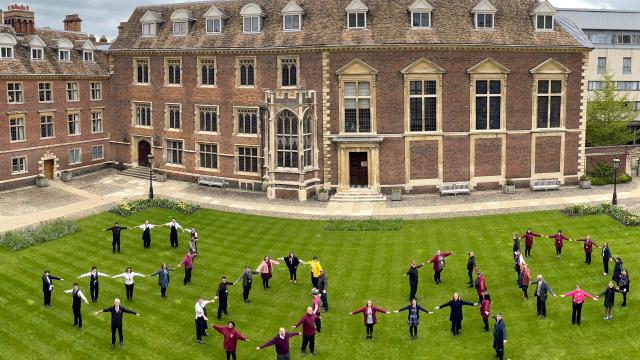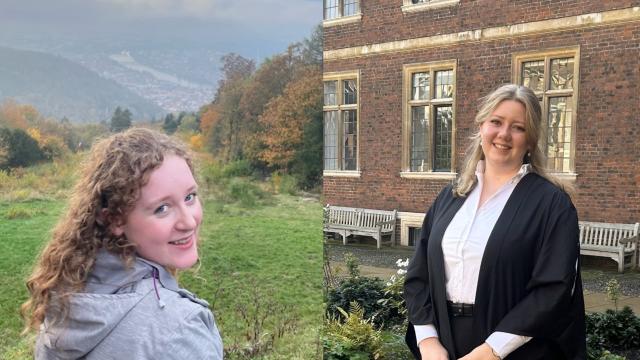
A cutting-edge book has been published today by a Fellow of St Catharine’s that presents an updated discussion and analysis of civilian 'enemy alien' internment in Britain, the internment of British civilians on the continent, and civilian internment camps run by the British within the wider British Empire. Dr Gilly Carr (2006), the College’s Director of Studies in Archaeology, co-edited with friend Dr Rachel Pistol, ‘British Internment and the Internment of Britons: Second World War Camps, History and Heritage’ (2023, Bloomsbury). Gilly also explored British experiences of the Compiègne-Royallieu internment camp in a case study included in one of the volume’s 16 chapters.
Dr Carr, who is also is a University Associate Professor and Academic Director in Archaeology at the Institute of Continuing Education, said:
“This is the first opportunity we’ve had to bring together the experiences of Britons interned in Europe with those of individuals interred by Britain and its colonies. My co-editor Dr Rachel Pistol and I were pleased to include updated statistics for the camps involved as well as perspectives from scholars working across a range of disciplines and countries, including the United Kingdom, Italy, Germany and Canada.
“Most of the chapters focus on historical accounts but we have also drawn on our own heritage expertise about the condition and commemoration of internment sites today, which can vary considerably. While concentration camps are rightly memorialised, the sites of civilian internment camps often weren’t preserved and don’t generally survive as heritage sites. Of course, as an archaeologist, I know there’s always some evidence beneath the soil, but only in recent years have the descendant communities begun campaigning for memorials after decades of silence in wider society.”
|
|
Even though Dr Carr has published about aspects of the Second World War in Europe over many years, this new book is particularly close to her heart. She and Dr Pistol dedicated ‘British Internment and the Internment of Britons’ to their relatives who were deported to internment camps.
Dr Carr explained, “Rachel and I met through our shared research interests but later discovered that we were both married to the sons of former internees. Rachel’s father-in-law was a Jewish refugee deported by the British to a camp in Australia, whereas my father-in-law was deported from the Channel Islands to a German civilian internment camp because his own father had served in the British armed forces in the First World War and was born in England. I’m proud that our new book shines a light on important experiences like these and unlocks new insights about these often overlooked sites.”
In a chapter entitled ‘An Autograph Book, Pianos, and Bodies hanging on the Wire: Memories of the British Experiences of the French Transit Camp of Compiègne’, Dr Carr turns her attention to a transit camp located in in the city of Compiègne not far from Paris:
“Compiègne-Royallieu was a military camp before the Nazi occupation of France, after which it was used to intern American citizens, and to hold French Jews and political prisoners before deporting them to concentration camps. Several hundred Channel Islanders were also sent there for three months before being deported to civilian internment camps in Germany. At the start of this century, the site was demolished, with three barrack blocks preserved as a memorial and museum, which was opened in 2008. It seems incredible that we are still destroying heritage sites which played a role in the Holocaust as well as interning others in the Nazi camp system. By revealing such hidden histories, we can ensure that the experiences of internment are recorded long after the sites themselves have been destroyed.”







